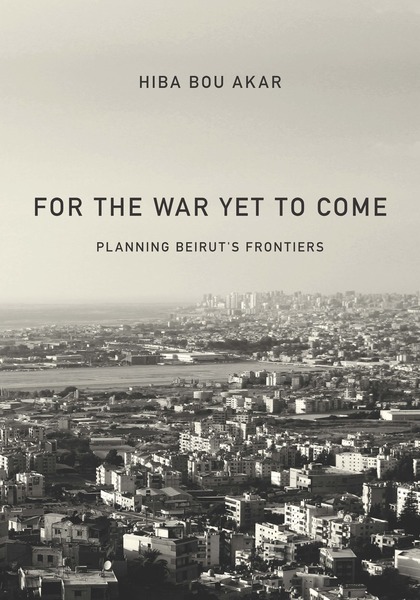Hiba Bou Akar Awarded 2019 Leeds Prize

The Society for Urban, National, and Transnational Anthropology (SUNTA) is pleased to award the 2019 Anthony Leeds Prize to Hiba Bou Akar for her book For the War Yet to Come: Planning Beirut’s Frontiers (Stanford University Press, 2019). Drawing on in-depth fieldwork, professional experience, and longstanding personal relationships in and with Beirut and its peripheries, Bou Akar offers a sustained analysis of the nature of urban planning in a city that many residents describe as lacking any coherent plan. By decoupling urban planning from normative assumptions about progress and development, Bou Akar raises crucial questions about the ways futures are articulated and realized in many cities around the world. Situating herself at the city’s southern and southeastern limits, Bou Akar configures planning in Beirut as a contested and often incongruous set of practices that deepen sectarian cleavages in the city. She pieces together archival fragments, interviews, charged encounters, and attention to the city’s material surfaces to demonstrate how religious-political authorities, government officials, planning professionals, and profit-minded developers are driven not by visions of progress and prosperity, but by a foreboding sense of “war yet to come.” Indeed, for Bou Akar, it is the perceived inevitability of violence, political usurpation, and economic catastrophe that shapes everyday life and policy in Beirut’s expansive peripheries.
Bou Akar deftly guides the reader through expansive frontier zones where sectarian parties battle for the city not through spectacular acts of military might, but rather through mundane, gradual, and seemingly innocuous efforts to buy and develop small parcels of land, occupy ruins, and quietly defy zoning regulations. In these interstitial spaces, we find playgrounds planned but unrealized, roads and highways half-built, burgeoning communities fractured and tenuously stitched together. We tour ruined structures that speak not only of past conflicts but also of ongoing territorial conquests and deepening political-religious schisms. We meet real estate developers who build upward and outward beyond legally permitted plans, increasing the capacity of structures and expanding factional hold over fragments of the city. This layered and complex landscape, Bou Akar asserts, is not a sign of the failure or absence of urban planning but rather indexes a collective misapprehension of planning’s intent. In the case of Beirut, she argues, planning becomes both a means and an end in itself. And sectarianism, much like the land on which it is enacted, emerges as a complex and highly unstable set of lived practices.
It is fitting that this year’s prize should be granted to a book that inhabits anthropology’s own disciplinary peripheries. As an architect and committed urbanist with an appointment in an urban planning department, Bou Akar proves herself as an adept ethnographer of a city she has called home and a professional practice in which she has trained. In a voice both crisp and incisive, she calls on urban studies scholars to bend and tinker with conventional approaches and methodologies, to blend intimate and embodied observations with rigorous data collection strategies, and to engage difficult sites and topics with a sense of intellectual generosity. The result transcends disciplinary divides and pushes anthropology into new conversations about war and peace, center and periphery, order and disarray. It is a book that is not just about Beirut, in the end, but rather about how the looming threat of economic, political, or environmental catastrophe has come to shape the urban order in cities throughout the world.

Contact Us

AAA members can also join CUAA by completing this form and sending it to: Membership Services
American Anthropological Association
2300 Clarendon Blvd. Suite 1301
Arlington, VA 22201-3357